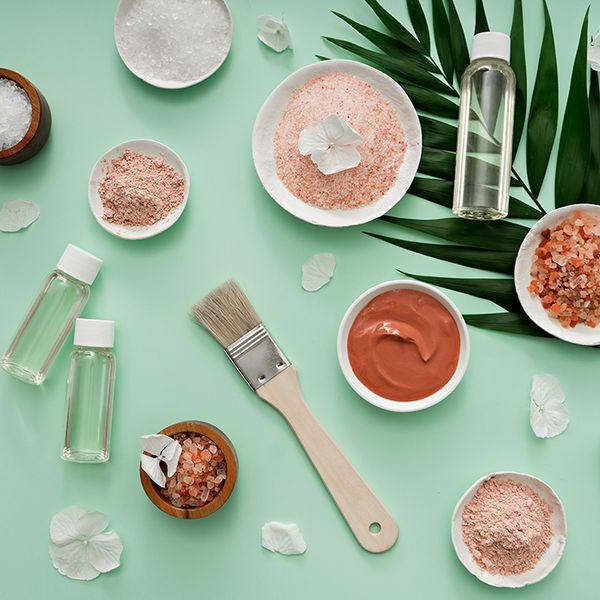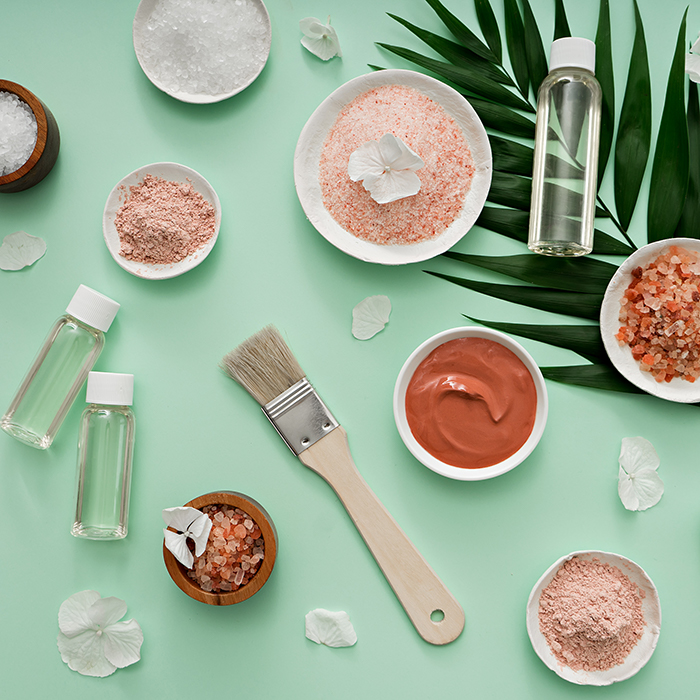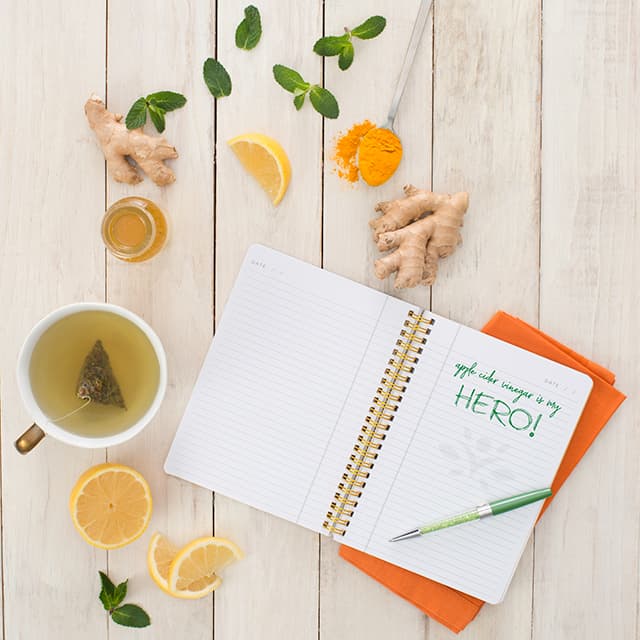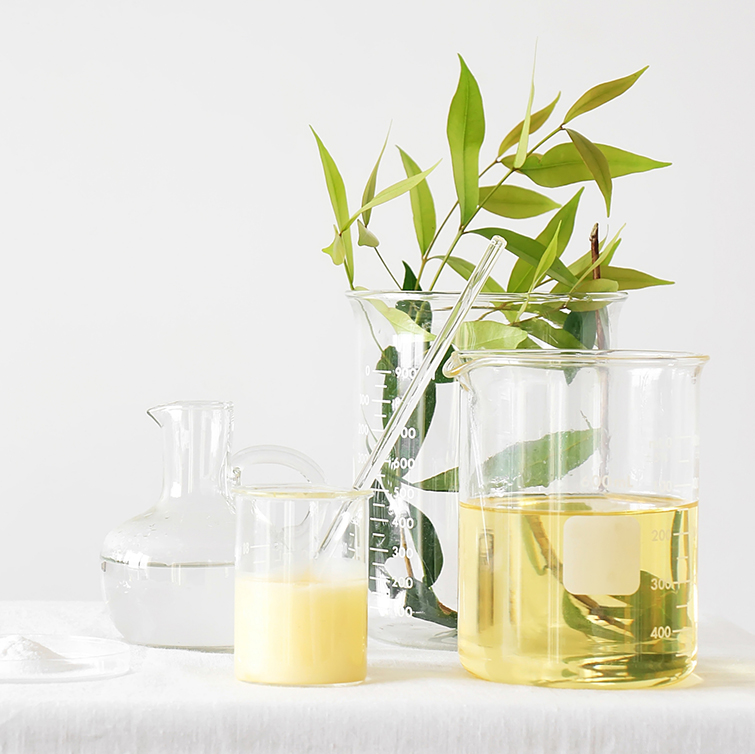A Complete Beginners Guide to Essential Oils
Your Complete Beginner's Guide to Essential Oils
Essential oils have been used for years for a wide variety of purposes, from promoting general health and wellbeing, to creating a more peaceful atmosphere through aromatherapy.
In this beginner's guide, we'll show you everything you need to know to begin using essential oils like a pro!
What is Aromatherapy?
Before we dive into all the exciting ways essential oils can be used for aromatherapy, let's begin with a basic explanation of what it's all about.
Aromatherapy is a well-established practice of using volatile plant oils, also referred to as "essential" oils, to support overall health and wellbeing.
Aromatherapy uses these natural oils extracted from flowers, seeds, leaves, roots, fruit and twigs for specific reasons.
These oils are then formulated to work in harmony with the body and may also offer benefits to your overall wellbeing.
Derived from these parts of plants and trees, essential oils possess a complex nature that is difficult to reproduce artificially.
In fact, some oils contain substances that don’t occur anywhere else naturally.
Aromatherapy is often used to promote relaxation and help relieve stress. It's also been used to promote sleep,1 support overall health and wellness and it may even help support healthy blood pressure that's already within the normal range.2
The History of Aromatherapy
Essential oils have been used for thousands of years as stimulants, sedatives and even for traditional or religious purposes.3
It's part of the holistic healing spectrum that, in addition to essential oils, also utilizes other natural ingredients like vegetable oils, jojoba (a liquid wax), herbs, sea salts, clays and even muds.
Aromatherapists apply certain oils directly to the skin via massages, but they also use the oils to freshen the air of their living spaces by using sprays or essential oil diffusers.
Historically, aromatherapy practitioners have believed that the scents produced by specific essential oils stimulated certain nerves within the olfactory system in ways which had a positive effect on the mind, such as by supporting memory or even boosting one's mood.4
Health Benefits of Aromatherapy
Take a whiff of the air around you. What do you smell? Are you immediately put in a good mood with the smell of fresh cut flowers?
Or do you suddenly crave some pie with the smell of baked apples and cinnamon wafting through the halls?
Hopefully you don't feel like gagging after being blasted with exhaust from a passing bus!
It’s easy to see how our olfactory system (sense of smell) can impact our feelings. The sense of smell is incredibly powerful.
In fact, your nose can distinguish between more than 1 trillion different scents!5
But, aromatherapy isn’t just about appealing smells; it also offers many potential health benefits, including the following:
- Supporting relaxation and stress relief1
- Aiding mood1 and well being
- Supporting your immune system6 and circulatory health2
Aromatherapy can be a great health practice in a variety of situations.
To find out which scents may help you, find an aromatherapy book at your local library or do some online searching to find out about popular essential oils.
You can even get recipes for mixing your own rejuvenating scents!
Blending Essential Oils
Different oils can be blended together to achieve a synergy. This means that the respective powers of the oils change to enhance their energy.
When a level of power has been reached, you achieve a synergy. Recipes for blending need to be followed exactly and the oils should be left to age for at least a week before adding them to carrier oils.
Essential Oil Dilution
Once you have chosen your essential oil, you can add it to base products to enhance your favorite health and beauty items.
To dilute essential oils, simply add them to unscented bath oils, hand and body lotions, massage lotions and shower gels.
- Massage – five drops per tsp of base oil or lotion
- Inhalation – one or two drops in boiling water or on a tissue
- Bath – Up to six drops in ¼ cup carrier oil (we like jojoba oil), then add eight to 10 drops of blended oils to bath water
- Sauna – two drops to 2 ½ cups water
- Facial – two or three drops in base product
- Foot Bath – eight drops in bowl of water
- Cleanser – 20 drops in 4 oz of base product
- Body – five to 15 drops in base product
- Chest Rub – 10 to 20 drops to 1 oz of carrier oil
- Laundry Wash – 10 to 20 drops per load
- Vacuum Cleaner – five to 10 drops
- Auto Vent Outlet – two or three drops
- Artificial Holiday Tree – 10 to 15 drops in 8 oz of water
Common Carrier Oils for Essential Oils
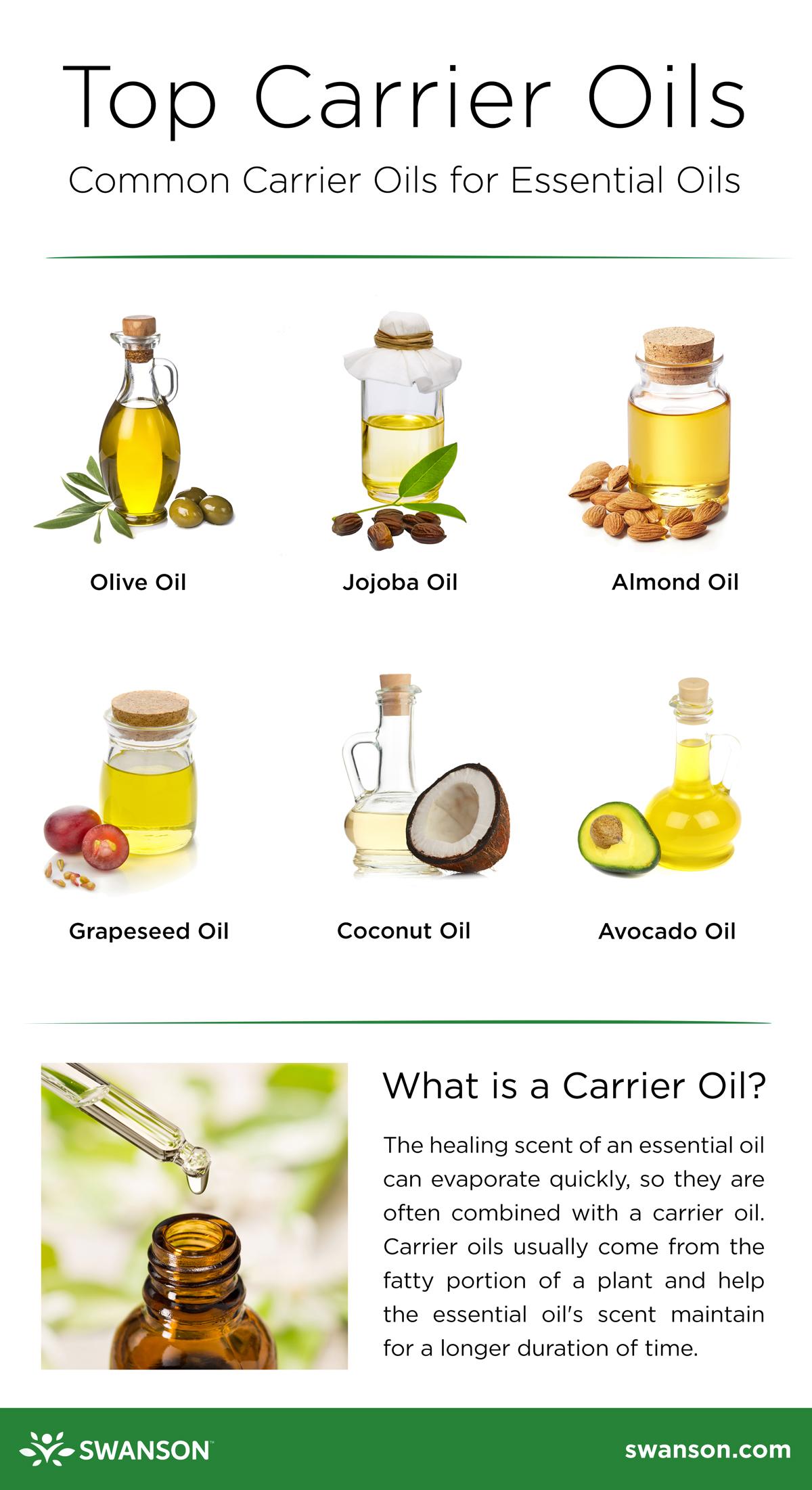
The healing scent of an essential oil can evaporate quickly, so they are often combined with a carrier oil.
Carrier oils usually come from the fatty portion of a plant and help the essential oil's scent last for a longer period of time.
How to Use Essential Oils
There are a ton of different ways to use essential oils. Below we've included actual customer reviews on how they've used essential oils for their own purposes.
Each one of these fantastic suggestions was submitted to us by one of our Facebook fans.
- "I make my own laundry detergent and use them to scent it!" –Keri L.
- "I love to use essential oils to make my own 'salt scrub' with almond oil. Makes skin feel so soft!" –Sandi N.
- "I love to use essential oils to refresh furniture. I mix a spray bottle with half hot water, half vinegar, drop fresh cut lemons in along with Lavender and Clove essential oils....amazing!!!" –Bobbi A.
- "I use essential oils to make mouthwash, in lotion for skin, in bath water and on the steam radiator so when it heats up, the whole house smells good as well." –Timothy S.
- "I use it with vinegar for a great laundry softener!" –Megan L.
- "I make my own toothpowder: 1/2 Himalayan sea salt and 1/2 baking soda mixed in my coffee grinder, then Peppermint Essential Oil to taste. I have used it for years and it's wonderful!" –Kathy W.
- "I put a few drops of lavender oil on a folded handkerchiefand keep it in my pillowcase for a calming bed time aroma." –Kaichita M.
- "Instead of buying expensive cleaning sprays, I put some Pine Needle essential oil in a large spray bottle and fill with water. I use it to clean the kitchen, bathroom sinks, etc. Any place that you would use a spray cleaner. I even spray my floors with it before I mop. It cleans great and smells wonderful!" –Lynn L.
- "I dab some on cotton balls and add them to my vacuum. I use them in the humidifier water and on the furnace filter." –Sue M.
- "Add it to my homemade laundry detergent." –Peggy B.
- "I use lavender in a diffuser to put a pleasant scent in the house." –Karen F.
- "I put an essential oil of my choice in organic coconut oil and brush my teeth with it!" –Carol L.
- "Spray the car interior with lavender oil in alcohol." –Barbara B.
- "I put a few drops in organic coconut oil and rub all over my skin after a shower." –Diane C.
- "Home-made air sprays, face creams and cosmetics." –Joyce O.
- "Any of the oils to get stickers off books. They slip right off." –Mary K.
- "Inhale tea tree oil scent mixed in a boiling pot of water." – Susan M.
- "Citronella on tops of my shoes when cutting the grass. Not one bit me this summer, and normally bugs love me!" – Carol F.
- "Love the aroma of any of the floral scents mixed with jojoba oil used as a perfume." – Marcia W.
- "Peppermint oil will keep mice out of your car engine and storage building." – Fred K.
- "I will be using essential oils for insect repellant for indoor, outdoor, & personal use." – Lisa G.
- "If you have a problem with ants coming into your house, apply Lemon Essential Oil. It works every time." – J.H.
What are Some Benefits of Essential Oils?
Essential oils are the fragrant, concentrated liquids extracted from the flowers, leaves, roots, bark and fruit of aromatic plants. Essential oils are often the main ingredients in aromatherapy products.
There are many essential oils ranging from spices and herbs to fruit extracts and florals. Each oil has a unique scent and properties that can be applied for many different uses.
Here are some popular essential oils and the common uses and benefits for them:
- Eucalyptus is purifying and invigorating, and often used in topical preparations
- Ginger can be used to stimulate the appetite
- Juniper Berry is associated with restoring and supporting benefits, and comes from the berry of the juniper tree
- Lavender is used in baths, sprays, lotions, oils and more to promote a calm and relaxed feeling
- Lemon is a refreshing and cheering oil that should be heavily diluted if you plan on applying to the skin or using in cleaning products for a fresh scent
- Peppermint is refreshing and cooling, and can help invigorate you with its powerful, minty aroma
- Rosemary is clarifying scent is often used in household sprays, soaps and shampoos
- Sage has a warming effect from its camphor scent
- Spearmint is a refreshing and cooling essential oil which can help refresh your skin if you add a few drops to your bathwater
- Tea Tree may support immune system health and has cleansing properties.7
- Ylang Ylang is sourced from the ylang ylang plant, originally cultivated in the Philippines. This essential oil is used to relax both the mind and body
Essential Oils for Hair & Skin Care
- Body Spray
In a spray bottle, combine five to 10 drops of an essential oil and 4 oz of water and shake. If you choose a citrus oil, be careful when applying it near your face. Some citrus oils may be phototoxic or photosensitizers, making your skin more susceptible to sunburn.8,9 - Shampoo
Support the health of your scalp by adding a few drops of lavender or cedarwood to your shampoo. Try adding rosemary oil to your shampoo to boost volume and increase circulation in the scalp.10 - Skin cream
Add two drops of rosemary oil to your skin cream for antioxidant support and protection against oxidative stress.11 - Make your own body oil
Add up to five drops of an essential oil to a teaspoon of carrier oil, such as sweet almond, olive, apricot kernel, borage seed, jojoba, sesame, sunflower or wheat germ oil. - Add to your hot tub or bathwater
Add up to six drops of essential oils to ¼ cup of your favorite carrier oil before adding eight to 10 drops of the blended oils to a bath. Avoid culinary oils including cinnamon, lemongrass and peppermint as they can cause skin irritations.
Which Essential Oil Supports Healthy Hair?
Not only is lavender a perennial favorite among aromatherapists, but research also shows that it can support hair health10 when used regularly to massage the scalp.
Here's a quick at-home, step-by-step lavender massage guide for your hair and scalp:
- Warm about half a cup of olive oil (not too hot).
- Blend in about 10 drops (or to your preference) of lavender oil.
- Apply this blend to your hair and gently massage your scalp.
- Wrap a warm towel around your head, sit back and relax for about 20 minutes.
- Follow it up with a natural shampoo and conditioner.
Best for Sleep and Self Care
Use Lavender oil in baths, sprays, lotions, oils and more as a part of your bedtime ritual as lavender may promote a calm and relaxed feeling.
Make a quick lavender-scented pillow insert by adding three drops of lavender oil to a wash cloth or linen square and placing it inside your pillow case.
Make your own calming body oil by adding three to five drops of lavender oil to 2 tbsp of a carrier oil like sweet almond or jojoba oil to support skin health and relaxation, especially during the dry winter months.
How to Use Essential Oils for Home & Hearth
- Deter pests
Place one drop of lavender oil on a cotton ball or piece of cloth to help temporarily get rid of moths and mosquitoes. - Humidifiers
To help keep your humidifier smelling fresh, add up to nine drops of tea tree oil. - Fire logs
Thirty minutes before burning a fire log, place one drop of cypress, pine, sandalwood or cedarwood oil on it. Do not use several perfumed logs at a time; a little goes a long way. - Stuffed animals
Soothe your kids with the calming scent of lavender or chamomile on their stuffed animals. Place a stuffed animal in a plastic bag, add a few drops of essential oil and close the plastic bag overnight. The following day the stuffed animal will have the dispersed scent and can be used for up to two weeks before reapplying more oil.
Best for Freshening Your Home
Lemon oil or Eucalyptus oil are best to help freshen your home and provide an invigorating, refreshing and cleansing scent.
Select one oil or use both: add two drops to a dryer ball to freshen your laundry, or four drops to an ultrasonic diffuser to help freshen your home with an energizing scent.
Tip: For maximum effectiveness, use essential oils within one year of opening the bottle.
Essential Oils Carpet Refresher Recipe - DIY
This is a brilliant way to freshen up your house by using essential oils!
Add your favorite scent to your rooms while you freshen your carpets with this simple mixture that costs pennies to make.
In a large bowl, combine 1 cup of baking soda or cornstarch with 7-10 drops of essential oil. Break up any clumps with a fork and stir well. Pour mixture into a cheese shaker or can with holes punched into the lid. Sprinkle liberally over the carpet. Wait 30 minutes, then vacuum.
Essential Oils for a Natural Bug Spray
Making your own natural bug spray at home is easy. A natural bug spray may provide temporary relief from bugs, but keep in mind they require more frequent application and higher concentrations than some commercial repellants.
Sunscreens, sweat, water and evaporation from wind or high temperatures can lower effectiveness.
Natural Oils That May Provide Temporary Relief from Bugs:
- Castor oil
- Cedar oil
- Cinnamon oil
- Citronella oil
- Clove oil
- Geranium oil
- Lemon eucalyptus oil
- Lemongrass oil
- Peppermint oil
- Rosemary oil
Best for Cleaning or Personal Care
Rosemary oil and Sweet Orange oil are refreshing and clarifying scents best for household sprays, soaps and shampoos.
To help clarify your hair and promote volume, add a drop or two of rosemary oil to your favorite shampoo.
For adding a refreshing scent to cleaning products, add two drops to your favorite household cleaner.
How to Use an Ultrasonic Diffuser for Essential Oils
Using an ultrasonic diffuser for essential oils is really easy. Take a look at this short video about oil diffusers.
We hope you've enjoyed this complete beginner’s guide to aromatherapy and essential oils!
If you would like more information on essential oils or aromatherapy, check out How to Diffuse Essential Oils and Essential Oils Beauty Tip: Choose the Right Carrier Oil.

About Lindsey Toth, MS, RD
Lindsey is a nationally recognized registered dietitian and nutritionist with a soft spot for ice cream. She empowers people to take charge of their health by finding the balance between the pleasure and nourishment in food. Her philosophy is that you should take care of your body because it’s the only permanent home you have. It’s what inspired her to pursue a career in nutrition.
*These statements have not been evaluated by the Food and Drug Administration. These products are not intended to diagnose, treat, cure, or prevent any disease.
Sources
1. What is Aromatherapy? WebMD. Read source
2. Effect of Aromatherapy. International Journal of Nursing Practice. Read source
3. Gattefosse's Aromatherapy by Rene Maurice Gattefosse. See source
4. Aromatherapy. University of Pittsburgh Medical Center. Read source
5. Humans Can Discriminate More than 1 Trillion Olfactory Stimuli. Science Magazine. Read source
6. Immunological and Psychological Benefits of Aromatherapy Massage. National Library of Medicine. Read source
7. Tea Tree Oil. National Library of Medicine. Read source
8. A Study of the Phototoxicity of Lemon Oil. PubMed. Read source
9. Phototoxicity of Essential Oils. Science Direct. Read source
10. Essential Oils for Your Hair. WebMD. Read source
11. Antioxidant Activity of Rosemary. PubMed. Read source
Many of these recipes include essential oils. We recommend handling essential oils with care and following any usage, safety guidelines, and drug interaction warnings on the label. Testing for skin sensitivity is important before using, and we recommend consulting a doctor, especially women who may be pregnant, to discuss what is safe for their individual needs.
